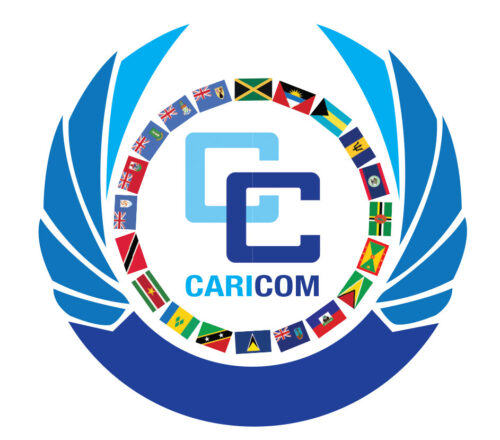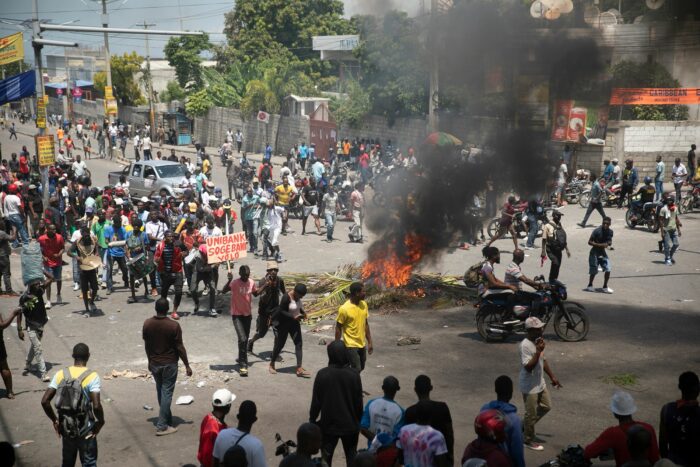
The Caribbean Community (CARICOM) said on Tuesday that it is gravely concerned by the continuing deterioration of the security situation and the social circumstances in the Republic of Haiti.
After months of turmoil, violent protests have engulfed Haiti again after Haitian Prime Minister Ariel Henry announced he would impose painful fuel price hikes last week—frustrating a population already grappling with soaring costs of living and political instability.
Thousands of Haitians took to the streets to protest the move and call for Henry’s resignation in an outpouring of anger that underscores the grim state of Haiti’s living conditions. As inflation soared to record highs, gang violence displaced thousands of people and food insecurity surged, leaving 40 percent of people dependent on food aid.
“The continued breakdown in law and order, and its distressing effect on the people of Haiti, is intensifying. The fraught situation is exacerbated by the inability of the Haitian security forces to address the ongoing violence” CARICOM said.
The unrest according to the regional body is hurting the already weak economy leading to even more mass demonstrations. Especially the worsening social conditions and the limited availability of food require urgent and immediate attention from the international community.
“This persistently distressing situation is untenable, and CARICOM calls for all stakeholders to engage meaningfully to find a way forward and to put the country first and address the situation urgently,” the statement continued.
CARICOM said after, discussions ns in the past weeks, remains available to assist and work with international partners to mobilize financial and technical resources to facilitate a process towards normalization and ultimately the holding of free, fair, and credible general elections.
Henry was appointed Haiti’s caretaker leader after the assassination of former President Jovenel Moïse in July 2021—and he later became a suspect in Moïse’s death. Despite his promises to hold elections and curb gang violence, neither has happened yet, further fueling criticism and public demands for political change.
In Port-au-Prince, Haiti’s capital, gangs have been violently jockeying for power, with civilians paying the price.
In July, more than 470 people died, disappeared, or were wounded due to gang violence in a span of fewer than 10 days, the United Nations said. It also warned that some gangs have started weaponizing food supplies and water to manipulate residents, further increasing malnutrition.
In a statement released Friday, the spokesperson for U.N. Secretary-General António Guterres said the unrest had “brought the country to a standstill.”
He warns that if the current circumstances continue, the already dire humanitarian situation faced by Haiti’s most vulnerable people will deteriorate even further.





0 Comments